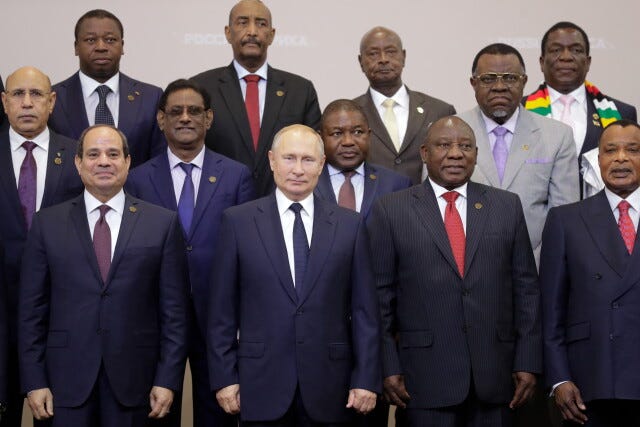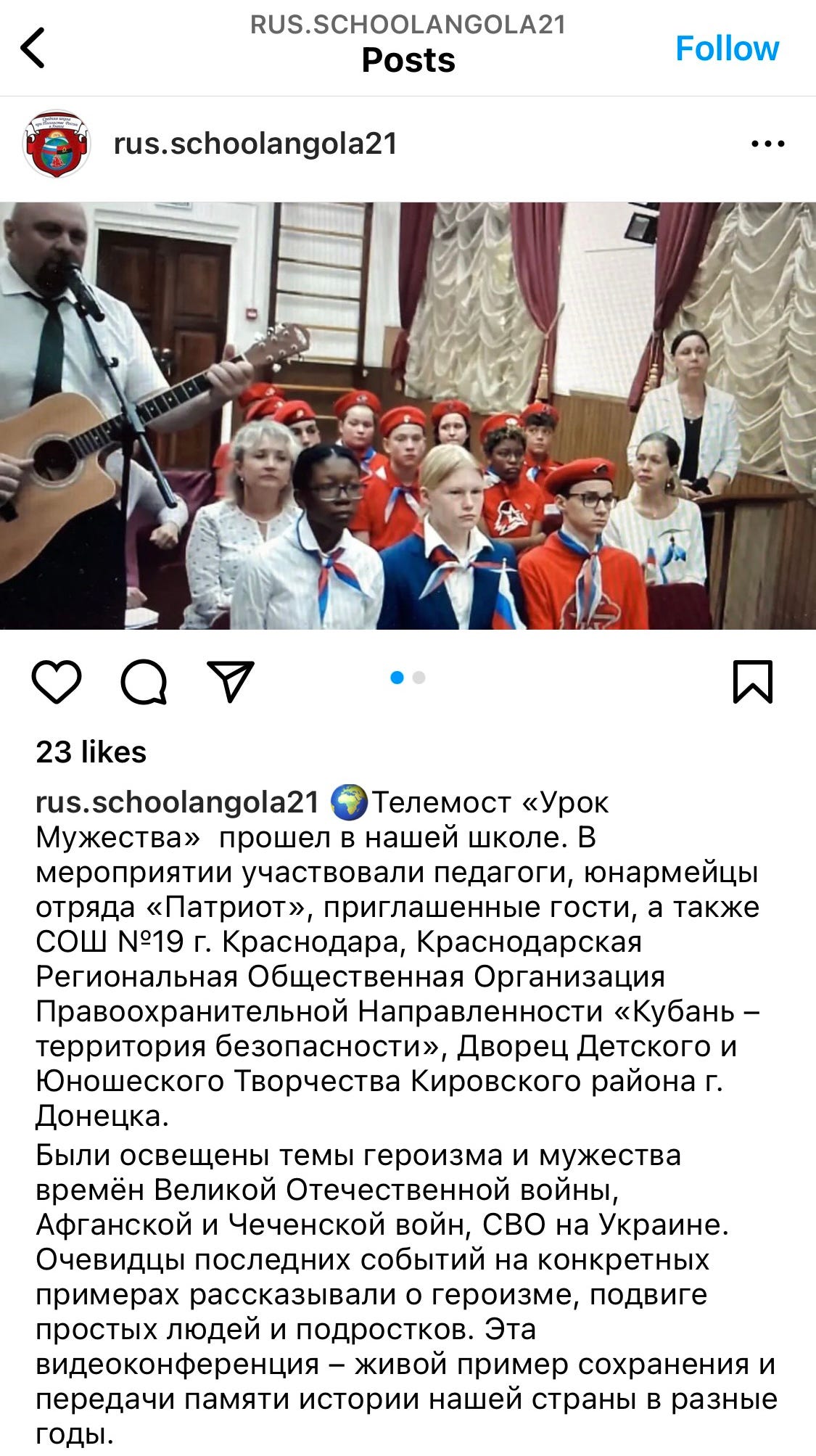Education: Russia’s soft power in Africa
Sanctions imposed on Russia by the West made it turn its quest for allies to Africa. And to increase influence in those nations, turned to proven soft-power tactics—educational partnership.

In an interview with the Prime Minister of Mali—an African country that made the reputationally-risky vote in the UN against an immediate end of war in Ukraine and welcomed Wagner group to the country —he made the reason for his alliance with Russia very clear. “I lived in the Soviet Union for 11 years. I am a Muscovite,” he said in the perfect Russian he had learned while studying at Moscow’s Technical University of Communications and Informatics.
After beginning of the war with Ukraine and the subsequent sanctions from the West, Russia turned its quest for allies to Africa. And to increase both short and long term influence in those nations, Russia turned to proven soft-power tactics—educational partnerships. In the last year alone, Russia has taken major steps to increase educational cooperation with several key countries on the African continent.
The first step was introducing the Russian language to an African audience, which is no easy task. Russian is one of the hardest languages to learn for non-native speakers. To address this issue, Russia started an online program, “Distant Russian in Africa” last year. On this site, African students can learn the language and take different classes in Russian.
To supplement online education with in-person classes, Russia then announced opening Russian language centers for African school children. The execution of these projects were tasked to different regional universities in Russia. For example, Voronezh Teaching University will open a Russian language center in DRC and Republic of Congo; in Zambia and Namibia, Russian language centers will be supported by a university in Moscow; and Chelyabinsk University will provide Russian language teachers for Mali and Senegal. To signal educational partnerships instead of a one-way influence, Russia has also announced that African languages, such as Swahili and Amharic, will be taught in schools in Russia.
Also in Africa there are Russian schools overseen by the Russian embassy. And their importance in teaching patriotism and popularization of Russian language and culture was even highlighted by Russia’s minister of foreign affairs Lavrov this week, in his special video address to teachers at those schools.
During his visit to Africa in January 2023, he also visited one such school in Angola. There not only Russian but Angolan children study. According to schools Instagram page, patriotic education plays an important part in the school’s curriculum. In one lesson, a class on courage, students at this school discussed topics like special military operation in Ukraine and some students joined all-Russia "Young Army" National Military Patriotic Social Movement Association, funded by Russian Ministry of Defence.
To increase this cooperation and promotion of Russia’s language and culture, the government has turned to the Russian community, which is what they call Russia expatriates and African locals who were educated in Russia and have returned to their home countries. They promised to support language and culture centers in their countries.
Because most important educational influence happens in higher education, Russia continues to increase cooperation with major universities on the continent. In December 2022, the St. Peterburg Technical University signed a cooperative agreement with universities in Mali and Senegal. And on January 27, 2023, the University of Kinshasa, DRC’s capital, even erected a monument of Russian cosmonaut Gagarin as a symbol of the educational cooperation between the two countries.
Russia already has universities for African students, such as the Egyptian-Russian University in Egypt and the Moscow-based Russian University of Peoples Friendship, that was established in 1960 to assist countries that had recently achieved independence from colonial powers. These also serve to further Soviet foreign policy goals in nonaligned countries. And in 2021, Russia opened another, the Russian-African Network University, with a goal of connecting African and Russian universities under one umbrella university. One of the main initiators, at least symbolically, and hosts of this project is the Crimean Federal University based in Russian-occupied Crimea.
In the summer of 2022 while the war with Ukraine was already going on, this university hosted a group of medical students from Tanzania, Zimbabwe, Tunis, Libya, Sudan and Nigeria. Doing so Russia wants to show to Africa that Crimea is part of Russia. And although information about upcoming Ukraine counteroffensive in Crimea is already public, the university plans to increase the number of African students in summer 2023.
In addition to historically-popular subjects for African students, like engineering and medical sciences, Russia is now also promoting special educational programs in such areas as journalism and even religion. For example, in the last year, Russian orthodox churches taught students from Cameron, Malavi, Nigeria and South Africa and journalists from Cameron, Nigeria, Tunis, Ethiopia and South Africa.
According to the Russian International Affairs Council’s own analytics, Russian investment in education in Africa helps improve Russia’s image and will allow an increase in non-commodity export. The cooperation portrays Russia as a partner that is helping to solve problems in African regions, and recruiting African students to Russian universities will allow Russia to create a pool of professionals who could be future leaders. These future African leaders will then promote cooperation between their countries and Russia even further.
The success of this strategy has already been proven by Soviet Union. “Education is the most important cooperation,” said Dansa Kourouma, president of the Republic of Guinea National Council of Transition, at a Russian-Africa Summit in 2022. “I finished university in Guinea, but it was built by the Soviet Union, and I am in my position now because of the great education I received there.”
While the number of African students currently studying in US universities is around 49,000, the number of African students in Russia is just slightly lower, 35,000. But Putin has an even more ambitious plan. Last month he doubled the number of full scholarships available to African students. That and the low cost of education and life in Russia (compared to the US) makes it a very desirable place to study for ambitious Africans.
Recently, US Vice President Kamela Harris went to Africa to try and decrease Russia’s increasing influence. In particular, the US government committed to an over $7 billion investment to 27 private sector companies meant to promote climate resilience, adaptation, and mitigation across Africa. In terms of soft power, according to the 2022 US strategy towards Sub-Saharan Africa, the US is actively seeking to strengthen African partnerships by promoting democracy, fostering open societies, supporting Africa’s conservation efforts, and bolstering trade between the continents. Part of the strategy includes increase involvement of America’s African Diaspora, including African Americans, descendants of formerly enslaved Africans.
But slavery is an issue Russia uses to its advantage. They constantly remind Africans that Russia did not have African slaves like the US or African colonies like Western Europe did, facts that make it even easier for Russia to project its soft power.
Less than a month ago, main Russian university for foreign students- the Russian University of Friendship of Nations retuned its original name, Patrice Lumumba University in honor of a DR Congo Prime minister allegedly assassinated by US and Belgium. The name university lost in 1992, after the fall of the Soviet Union.


